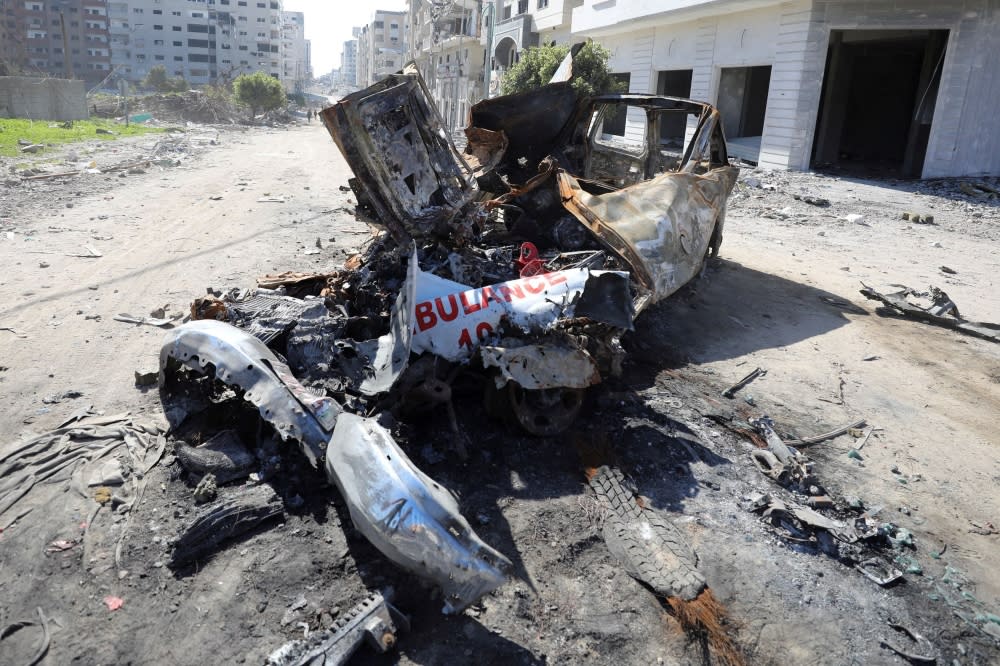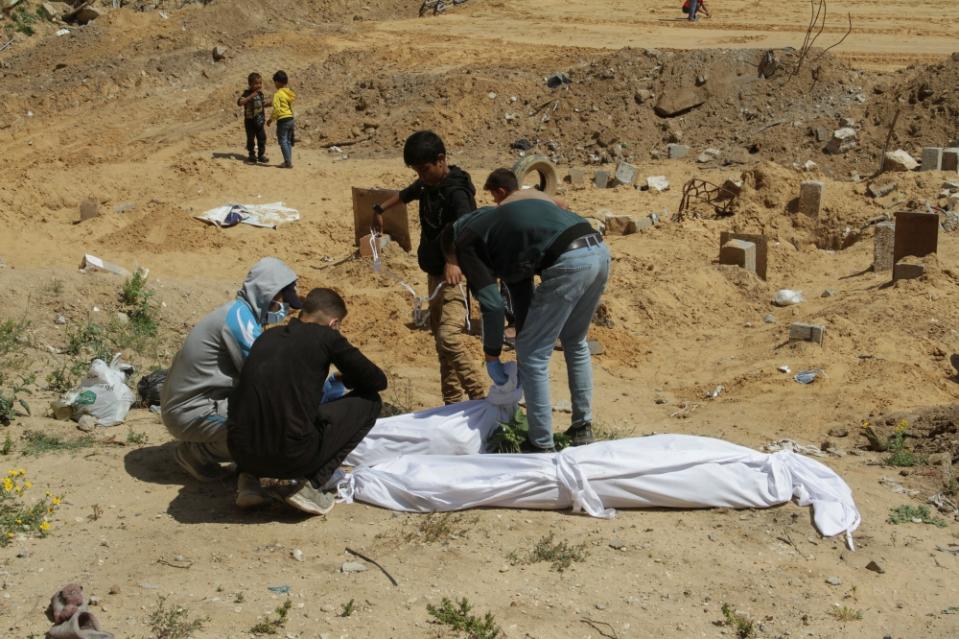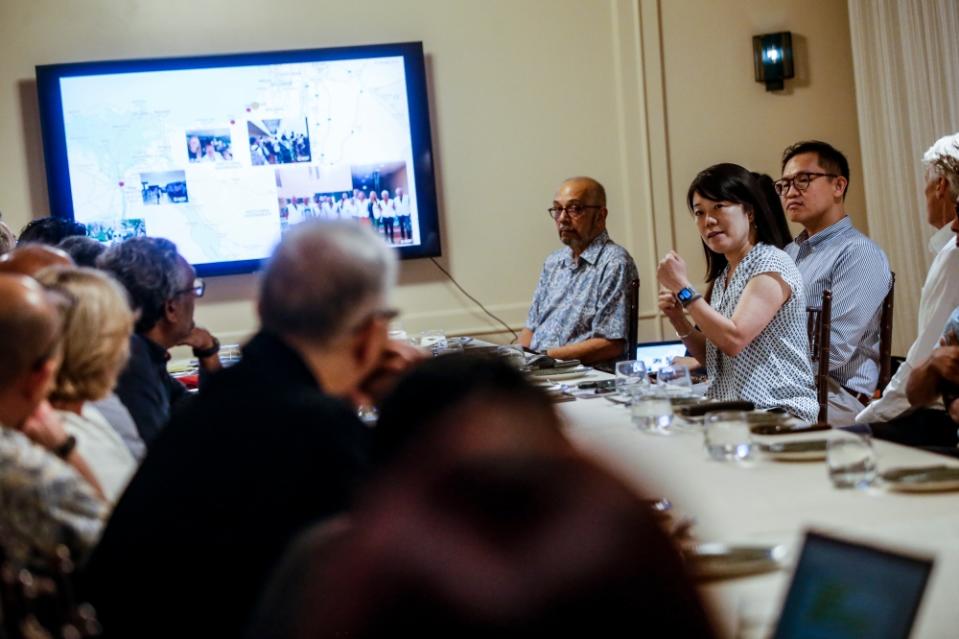How are hospitals and the sick in Gaza? Japan Doctors Without Borders chief shares experience, says injuries from Israeli assault like none you've seen before

KUALA LUMPUR, April 18 — The injuries inflicting Gazans from the Israeli attack were unprecedented, said Dr Yuko Nakajima, Japan president of Medecins Sans Frontieres (MSF), more commonly known in English as Doctors Without Borders.
Based on her personal account when she worked for three weeks in Nasser Hospital last year, the emergency physician revealed all she could do was make sure that her patients were stable and would survive until surgery as the medical infrastructure there was unable to provide full care for more severe injuries.
"The extent of injuries are so severe, the burns are some you have never seen before,” she said during an MSF briefing attended by Malay Mail yesterday.
"The more severe your injury is, you need multiple surgeries, different specialities, you need psychological care, you need the whole infrastructure,” she said, adding that Gazans have food at the top of their worry amid non-existent infrastructure.
Apart from that, Paul McPhun, director for Southeast and East Asia Pacific MSF, divulged that some 8,000 patients require medical care that is unavailable to them.

Palestinians cover a body, which was buried in a mass grave, amid the ongoing conflict between Israel and Hamas, in northern Gaza Strip, April 15, 2024. ― Reuters pic
"Currently there have been over 33,000 civilians killed in Gaza. Over a third of those are children. 8,000 patients today require a level of medical care that is not available to them, they require medical evacuation outside of Gaza and that medical evacuation is not available to them,” McPhun said.
Despite having overwhelming support towards Gaza, he said that MSF still requires more donations to keep up with the unprecedented amount of help needed in the region.
"When there's an airstrike, there's a lot of people injured and there’s an influx of people, 20 patients would come in but maybe 10 were dead already,” Dr Yuko shared.
Despite being the biggest hospital in southern Gaza then, it was still overcrowded because medical staff and civilians lived there after they lost their homes.
"The Gazan staff that we worked with, they’ve been working continuously without any rest since the war started, and they’ve lost their houses, so they live in the hospital. So, they’re always available to work.
"As a physician, it’s unthinkable. If you want to provide good care, you need to take good care of yourself too, but everybody who was working was so dedicated to helping the wounded,” Dr Yuko said.
But, often, there would be enough beds in the hospital as patients died due to the lack of medicine such as antibiotics and the surge of infections from injuries that would sometimes lead to sepsis, she told Malay Mail.
The inadequate medical supplies were mostly caused by strict border control, she explained.
But while she was there, the first medical supplies shipment had arrived in unlabeled boxes. Dr Yuko and other doctors took on the role of what non-medical staff would typically do — sorting out the supplies.
"Every morning, we would do an inventory and find stuff, so we would bring it to the hospital,” she shared, adding that it was her favourite activity to bring in new supplies because it would bring joy to the other doctors.
Getting through the border was undoubtedly a huge hurdle for humanitarian workers.

Dr Yuko Nakajima, Japan president of Medecins Sans Frontieres (MSF) speaks during the Gaza MSF briefing session in Kuala Lumpur April 17, 2024. ― Picture by Hari Anggara
Dr Yuko and her team of 13 were only able to cross the border into Gaza, from Egypt on November 14, after almost a month's worth of attempts.
Further, within three weeks, Dr Yuko and the other medical staff had to move their lodgings twice due to the escalated strikes in the area.
There have been 400 attacks against medical facilities and 20 attacks on MSF’s medical facilities and the organisation has lost some of their staff due to the shelling, McPhun elaborated.
McPhun also disclosed that infectious disease outbreaks are also emerging among Palestinians due to unsanitary and harsh conditions.
In February, Al Jazeera reported that Nasser Hospital was no longer functioning after the Israeli regime raided and shelled the area.
Medecins Sans Frontieres or Doctors Without Borders is a financially independent and politically neutral organisation that provides medical assistance in places with armed conflict, natural disasters, epidemics, and healthcare exclusion.
MSF also offered medical assistance to Israel but it was declined.
The Israel-Palestine conflict began as early as the day after Israel's creation as a state in 1948, displacing hundreds of thousands of Palestinians. There have been attacks by both sides since and there have been multiple failed attempts at peace.
The conflict escalated in October last year after Hamas launched attacks against the south of Israel, but the latter's retaliation has killed more than 33,000 Palestinians so far according to the Palestinian health ministry.



